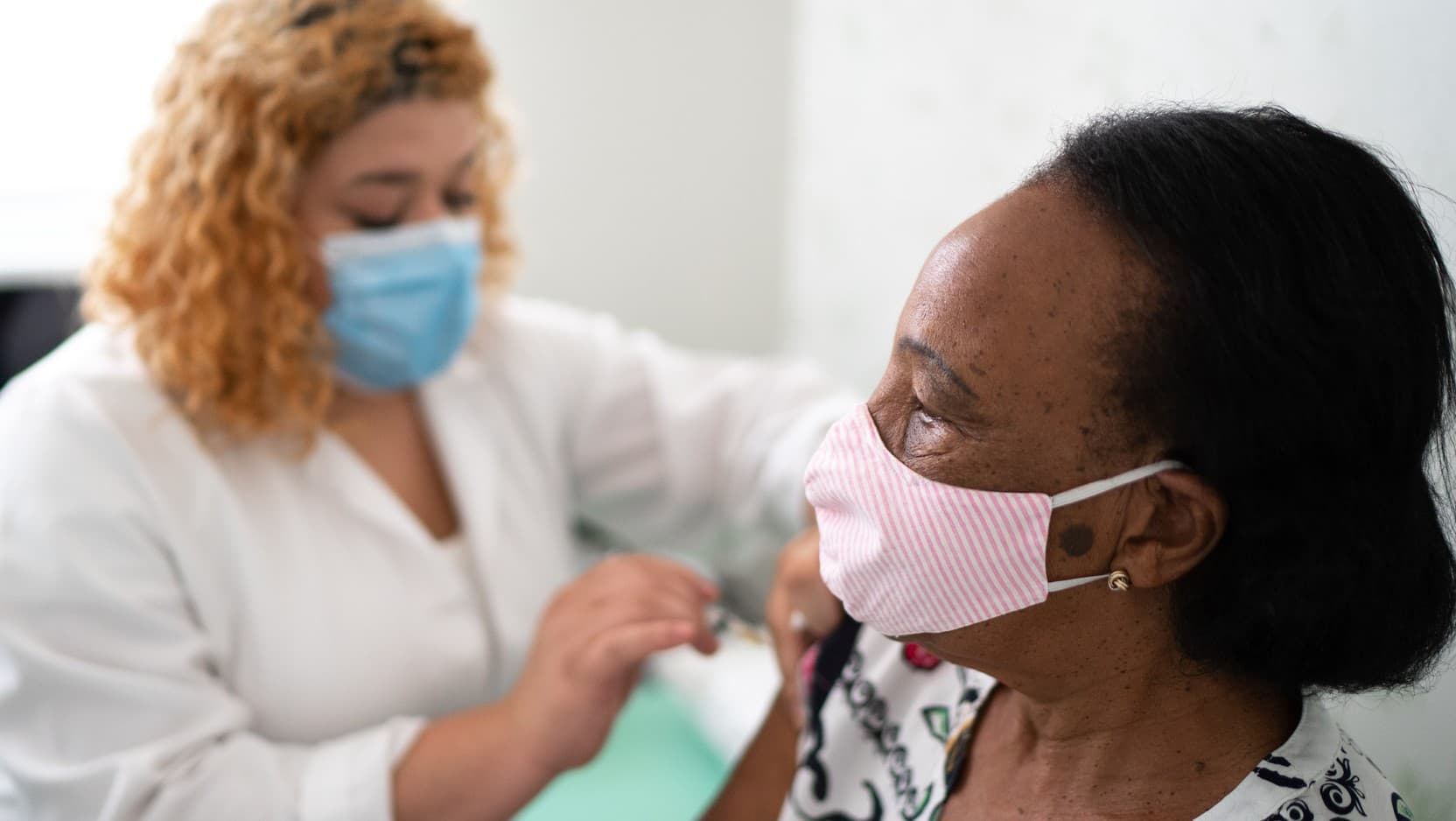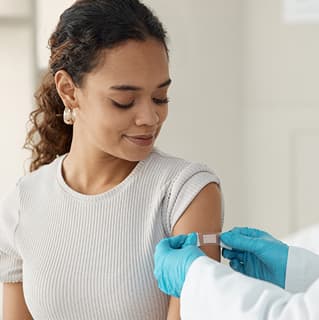What to know about the updated COVID-19 vaccine and annual shots

Updated COVID-19 vaccines are now widely available to protect against new variants for this fall and winter season. The U.S. Centers for Disease Control & Prevention recommends everyone over 6 months should get one dose of an updated mRNA COVID-19 vaccine.
Mixing and matching any of the vaccines is okay, so there’s no need to look for any specific brand when it’s time to get the annual update.
Individuals who have existing medical problems, are over the age of 65 or are immunocompromised may qualify for doses in between the annual fall updates. Your doctor will be able to advise you on when to get your additional immunizations.
COVID-19 is here to stay, and new variants will pop up with time. Like the flu shot, the CDC expects we will need an updated annual COVID-19 vaccine that targets new variants yearly.
Am I eligible for an updated dose of the COVID-19 vaccine?
The CDC recommends everyone ages 6 months and up receive an annual COVID-19 vaccine – just like the flu shot. Whether you’re someone who’s healthy or you’re someone who’s immunocompromised, seasonal COVID-19 vaccines will provide additional immune system support. Staying up to date with your vaccination is your best protection to avoid severe illness, hospitalization and even death.
As an infectious diseases specialist and hospital epidemiologist at the University of Chicago Medicine, it’s critical that people get their annual influenza and COVID-19 vaccines.
What are the side effects of the new COVID-19 vaccine?
Side effects from the updated vaccine tend to be mild, and many people experience no side effects at all. Similarly to the flu shot, typical side effects of the COVID vaccine include:
- Headache
- Soreness at the site of vaccination
- Low fever
- Chills
- Feeling tired
Is an updated vaccine the same thing as a booster dose?
An additional dose is the same as a booster.
Does my updated vaccine need to be the same brand as my initial vaccine?
Mixing and matching any of the vaccines is okay, so there’s no need to look for any specific brand when it’s time to get the seasonal update.
I’ve already had three doses of the COVID-19 vaccine. Do I need another one?
Yes. Regardless of the number of previous doses you’ve received, the current recommendation is that everyone aged 6 months and older get an annual COVID-19 vaccine. These are now typically given in the fall.
If I am immunocompromised, will I be fully protected after I get my vaccine?
It depends. If you are immunocompromised, the COVID-19 vaccine is supposed to provide you with better protection from COVID-19, but it may not provide you with the same level of immunity as healthy people. That means you should still take extra precautions to avoid getting COVID-19, such as wearing a mask (especially inside) and avoiding large crowds or high-risk activities. If you do get COVID-19, you should talk to your doctor right away about getting prescription antiviral medication, even if your symptoms are mild.
Discuss your ongoing risk with your healthcare provider and ask them how to reduce your risk. You may qualify for doses in between your annual vaccination.
Can children get an updated dose?
The CDC recommends everyone aged 6 months and up get the updated COVID-19 shot. For most people, immunity has waned, and new variants are circling around communities in the fall and winter seasons. Staying current on vaccination means fewer days of school missed and reduces the spread of COVID. The majority of kids who are hospitalized for COVID-19 have not been vaccinated. Staying up to date on vaccination makes kids more likely to have a mild case of COVID – or not have it all – if exposed to the virus.
Can I get the COVID-19 vaccine and flu shot at the same time?
It’s okay to schedule your updated annual COVID-19 vaccine together with the annual flu shot. You might have a little soreness in both arms, and there’s a slightly higher chance of feeling fatigue and a low fever from both shots together. But convenience outweighs the risk for most people.
If I qualify for the RSV vaccine, can I get it at the same time as my COVID-19 vaccine and flu shot?
Current recommendations say you can get all three vaccines at the same time. However, if you typically have side effects from vaccines, you may want to space these out one to two weeks apart.
Will more people keep needing additional doses of the COVID-19 vaccines?
It’s almost certain that most people will need to get annual shots for COVID-19, just like the flu shot. Data show that staying updated on vaccination protects people, particularly against new variants. If you haven’t gotten your updated vaccine yet — or been vaccinated at all — you should get yours right away.
Can I get the updated vaccine if I recently had COVID-19?
If you recently had COVID-19, you still need to get the annual shot to stay up to date on vaccination. However, you may want to delay getting vaccinated for three months after the start of symptoms or a positive test.
Do not get vaccinated while you are symptomatic or tested positive for COVID-19.
Do I have to pay for the vaccine?
Your insurance, Medicare or Medicaid covers vaccination. The CDC temporarily provides vaccination coverage through December 2024 for those who aren’t insured or underinsured through the Bridge Access program.
Check with your provider to verify any fees.
Primary Care at UChicago Medicine
UChicago Medicine primary care physicians serve as your first line of care and provide expert care for preventive health, routine checkups, vaccinations and more.
Learn more about primary care at UChicago Medicine
Emily Landon, MD
Dr. Emily Landon specializes in infectious disease, and serves as Executive Medical Director for infection prevention and control.
Learn more about Dr. Landon.
Get Your COVID-19 Vaccine
Vaccines keep you and your family safe and are the most effective way to prevent the spread of COVID-19. Call 773-834-8221 to schedule your vaccine appointment today at UChicago Medicine.
Learn more